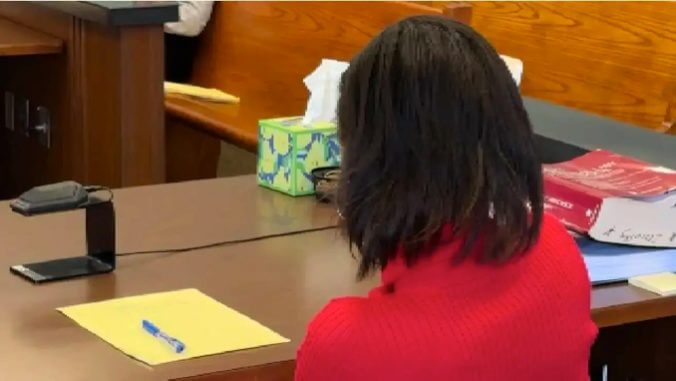Ohio Woman Faces ‘Abuse of a Corpse’ Charge for Miscarriage in Another Post-Roe Nightmare
JusticePolitics
Brittany Watts, a Black woman in Ohio, is facing felony charges for “abuse of a corpse” after miscarrying 22 weeks into her pregnancy in September—and her case is now heading to trial. Watts, 33, is specifically accused of miscarrying her pregnancy while using the restroom and then flushing the fetal remains down her toilet. The remains were uncovered by local law enforcement on Sept. 22, per the Warren Police Department.
Watts faces this felony charge even as a forensic pathologist testified last month that her fetus was not born alive and died before passing through the birth canal; further, he said the fetus was “nonviable because [Watts] had premature ruptured membranes—her water had broken early—and the fetus was too young to be delivered.” Watts’ defense attorney, Tracy Timko, told local media last month that her client “learned days before” her miscarriage that this outcome “was inevitable and that the fetus could not survive outside the womb due to gestational age.”
Warren assistant prosecutor Lewis Guarnieri has previously responded to Timko and the forensic pathologist by arguing that “the issue isn’t how the child died, when the child died, it’s the fact that the baby was put into a toilet, large enough to clog up a toilet, left in that toilet and she went on [with] her day.” There is a lot to unpack here, foremost that fetal remains from a miscarriage are not a “child” or “baby,” and this language is both inaccurate and dangerous. Nonetheless, Warren Municipal Court Judge Terry Ivanchak decided to move the case forward, shrugging off the matter of “the exact legal status of this fetus/corpse/body/birthing tissue/whatever it is,” as he so dismissively put it.
In a statement shared with Jezebel this week, Timko accused law enforcement of “demonizing” her client “for a common experience that many women share.” She continued, “Brittany suffered a tragic and dangerous miscarriage that jeopardized her own life. Rather than focusing on healing physically and emotionally, she was arrested and charged with a felony and is fighting for her freedom and her reputation.” State law, Timko said, “does not support criminalizing someone for a pregnancy loss.”
Farah Diaz-Tello, senior counsel and legal director of If/When/How, told Jezebel that a case like Watts’ is “shocking but not unexpected,” as If/When/How’s research shows “prosecutors are looking for ways to punish people when the law doesn’t really allow it” as applied to pregnancy. Watts’ case is also inseparable from her identity as a Black woman: “We have a young Black woman who’s being punished for something that happens to people across the country all the time,” Diaz-Tello said. “It’s no coincidence, the scrutiny and judgment that’s been placed on her for something that in other circumstances would be considered a tragedy. Yet when we’re talking about a Black woman, we’re treating it like it’s a crime.”
-

-

-

-

-

-

-

-

-

-

-

-

-

-

-

-

-

-

-

-

-

-

-

-

-

-

-

-

-

-

-

-

-

-

-

-

-

-

-

-








































